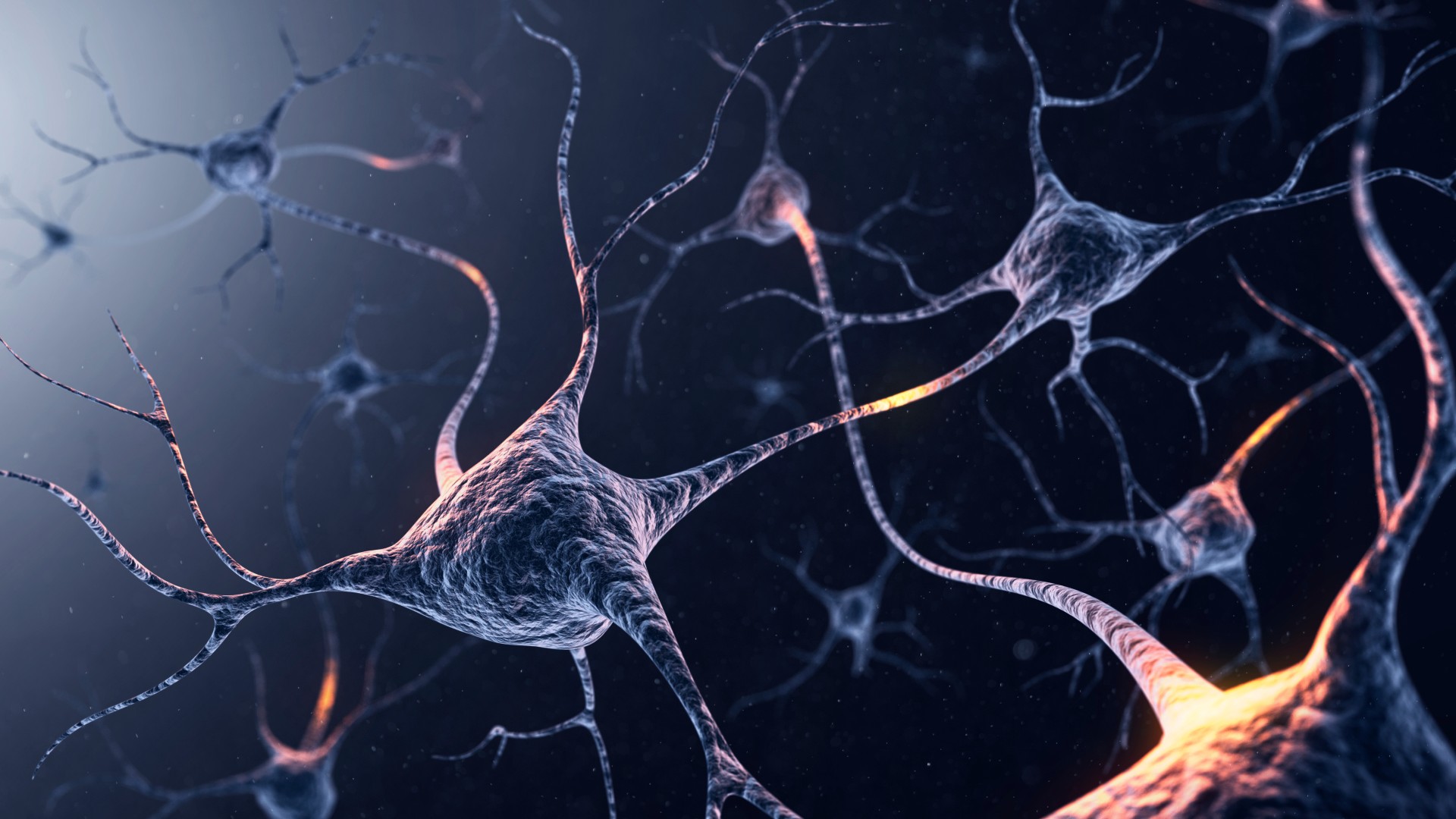Pain can linger even after a UTI is gone — haywire nerve growth may explain it
A new study in mice and human tissue samples suggests that UTI symptoms may persist after the infection has been treated due to an overgrowth of neurons in the bladder.

Get the world’s most fascinating discoveries delivered straight to your inbox.
You are now subscribed
Your newsletter sign-up was successful
Want to add more newsletters?

Delivered Daily
Daily Newsletter
Sign up for the latest discoveries, groundbreaking research and fascinating breakthroughs that impact you and the wider world direct to your inbox.

Once a week
Life's Little Mysteries
Feed your curiosity with an exclusive mystery every week, solved with science and delivered direct to your inbox before it's seen anywhere else.

Once a week
How It Works
Sign up to our free science & technology newsletter for your weekly fix of fascinating articles, quick quizzes, amazing images, and more

Delivered daily
Space.com Newsletter
Breaking space news, the latest updates on rocket launches, skywatching events and more!

Once a month
Watch This Space
Sign up to our monthly entertainment newsletter to keep up with all our coverage of the latest sci-fi and space movies, tv shows, games and books.

Once a week
Night Sky This Week
Discover this week's must-see night sky events, moon phases, and stunning astrophotos. Sign up for our skywatching newsletter and explore the universe with us!
Join the club
Get full access to premium articles, exclusive features and a growing list of member rewards.
People who experience recurrent urinary tract infections (UTIs) sometimes have lingering pain or still feel the need to pee often, even after their most recent infection has been treated — but now, scientists know why.
It turns out that bladder damage caused by recurrent infections can drive immune cells called mast cells to release chemicals that drive the overgrowth of nearby nerves. These nerves are then more likely to transmit signals to the brain that are interpreted as either pain or the sensation that the bladder is full, even if it's not. The mast cells also spew inflammatory molecules called histamines that further rev up pain receptors in these nerves, even in the absence of an active infection.
The new findings, published Friday (March 1) in the journal Science Immunology, come from a small study conducted using tissue samples from human patients' bladders and more detailed analyses in mice. Although it's still early days, the research suggests that it may be important to develop treatments that target nerve outgrowth in these patients, the authors say. Such therapies could be used as an add-on to the initial antibiotics used to treat a person's infection.
Related: Bacteria from meat may cause a half-million UTIs a year
An explosion of nerve growth
UTIs are bacterial infections of the urinary system, which includes the bladder, kidneys, and the tubes that run between these structures and to the outside of the body. Common symptoms include the feeling of needing to pee more often than usual and experiencing pain while doing so.
Around 80% of all UTI cases occur in women. Many develop recurrent UTIs, defined as having two "episodes" of infection and associated symptoms within six months of each other. UTIs are usually cleared within days of someone starting antibiotics, but sometimes their symptoms can persist.
To investigate why, Abraham and colleagues analyzed tissue samples taken from the bladders of eight women who experienced recurrent UTIs and three who didn't. The patients in the former group were experiencing symptoms of a UTI at the time of the study but did not have bacteria in their urine, suggesting they didn't have active infections.
Get the world’s most fascinating discoveries delivered straight to your inbox.
The researchers found that the tissues from people with recurrent UTIs contained a much higher number of nerves. Separately, when they compared urine samples from 25 women who experienced recurrent UTIs to those from 12 women with no history of the infections, they found that the former group had higher concentrations of a protein called Substance P, which nerves make when activated.
To see if these differences appear due to recurrent UTIs, the team experimented with mice. They infected the mice once a week with UTI-causing microbes, for three consecutive weeks. Compared to mice who hadn't been infected, the mice with recurrent UTIs needed to pee more often and were more sensitive to being touched around the pelvis.
A close look at the rodents' bladders revealed that they shared many of the same characteristics seen in the human tissue samples.
Related: Fatal 'brain-eating' amoeba successfully treated with repurposed UTI drug
"We saw the nerves had sprouted all over — they had increased in length and had many more branch points," Soman Abraham, co-senior study author and a professor of pathology at the Duke University School of Medicine in North Carolina, told Live Science. They also saw that mast cells located near the nerves were producing a growth chemical called nerve growth factor (NGF).
When you have a UTI, the bladder sheds its outer lining to help rid itself of the bacteria causing the infection, Abraham said. However, nearby nerve cells are also shed in this process, which the body then tries to replace. In people with recurrent UTIs, this system seems to kick into overdrive and ultimately spur too much nerve growth.
In another experiment, the team blocked NGF production in mice with recurrent UTIs; this prevented the nerve overgrowth and reduced symptoms of the disease.
These findings need to be confirmed in further studies, including in experiments with larger animals, before they could be used to develop any kind of treatment that could be tested in humans. However, these initial observations suggest that developing therapies to prevent nerve outgrowth could offer "better and earlier relief" from the "most pressing symptoms" experienced by people with recurrent UTIs, the authors wrote in the paper.
In theory, such treatments could also help cut back on the doctors prescribing antibiotics when they're not needed. If a patient doesn't have an active UTI, antibiotics won't help diminish their symptoms, but perhaps an alternative treatment could. The overuse of antibiotics can both have knock-on effects in patients — disrupting their gut microbiomes, for example — and contribute to the rise of antibiotic resistance.
This article is for informational purposes only and is not meant to offer medical advice.
Ever wonder why some people build muscle more easily than others or why freckles come out in the sun? Send us your questions about how the human body works to community@livescience.com with the subject line "Health Desk Q," and you may see your question answered on the website!

Emily is a health news writer based in London, United Kingdom. She holds a bachelor's degree in biology from Durham University and a master's degree in clinical and therapeutic neuroscience from Oxford University. She has worked in science communication, medical writing and as a local news reporter while undertaking NCTJ journalism training with News Associates. In 2018, she was named one of MHP Communications' 30 journalists to watch under 30.
 Live Science Plus
Live Science Plus











